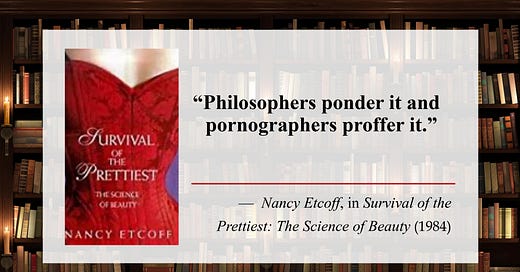Opening Line of the Week
It’s hard to imagine a more provocative way to open a book on the nature and importance of beauty in human life. Etcoff—a professor at Harvard Medical School and a clinical psychologist at Massachusetts General Hospital—completed the first paragraph of her book in an equally impressive way:
“Asked why people desire physical beaut…
Keep reading with a 7-day free trial
Subscribe to Dr. Mardy's Substack to keep reading this post and get 7 days of free access to the full post archives.



